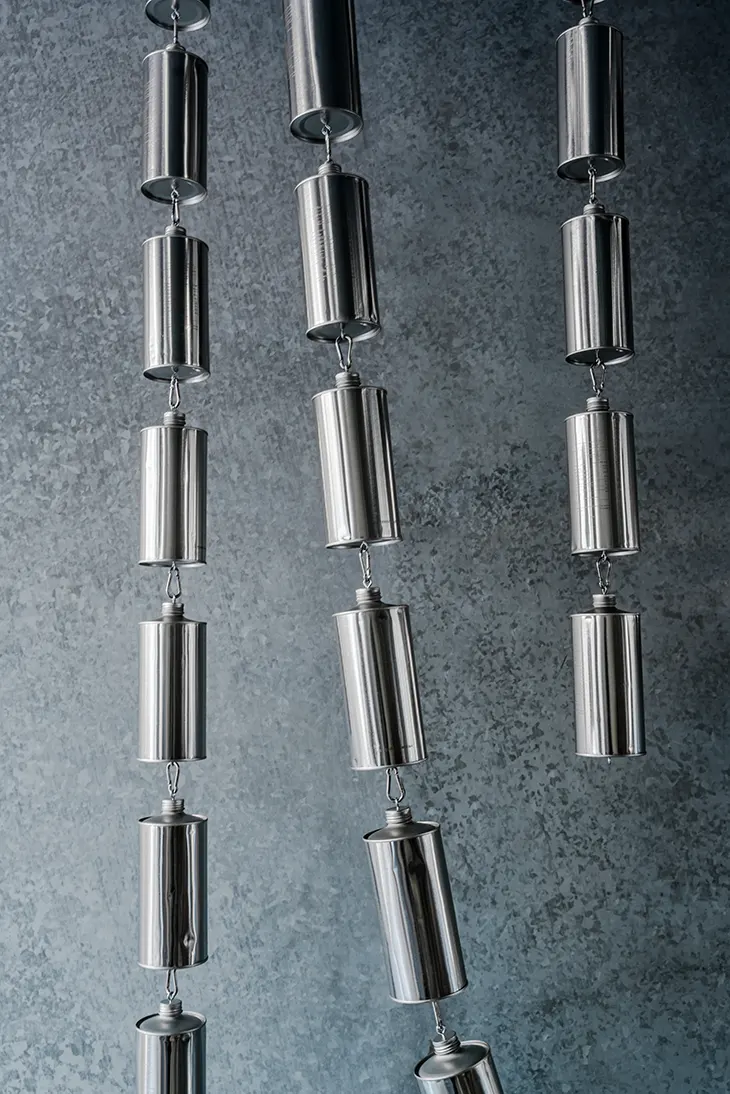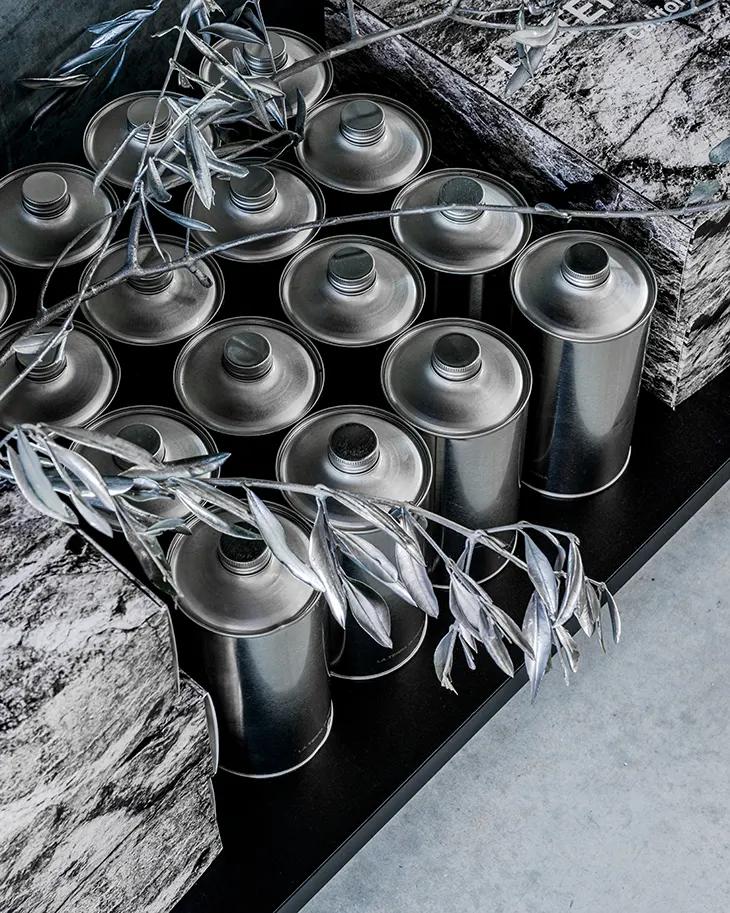
During the opening days of Milan Design Week 2025, Crosby Studios founder Harry Nuriev and CMO Tyler Billinger unveiled their latest venture, La Terra di Neena, a brand that fuses artisanal olive oil with sculptural home goods. Launched through an immersive installation at Capsule Plaza’s third edition at Spazio Maiocchi, the project bridges agriculture, design, and personal heritage. Drawing from a family-owned olive farm in Roccalbegna, Tuscany, the brand signals a shift for the creative duo, grounding their practice in seasonal production, sensory design, and a personal relationship with place and heritage.
DESIGN
Named after Billinger’s mother, Neena, the project began four years ago when Billinger’s Italian family acquired a 130-acre olive grove. What started as a seasonal gathering soon became a full agricultural commitment. Together, they restored the terrain, became certified olive growers, and built a culture of harvesting that brings together their international community of friends and collaborators. This year, La Terra di Neena releases its first batch of certified organic extra virgin olive oil, debuting as a design experience.
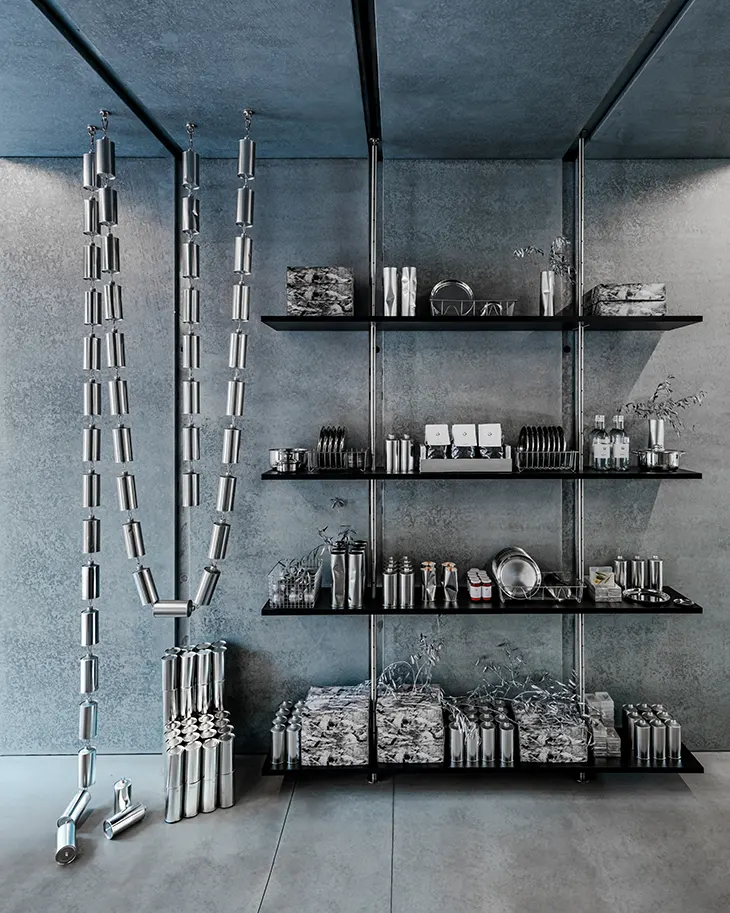
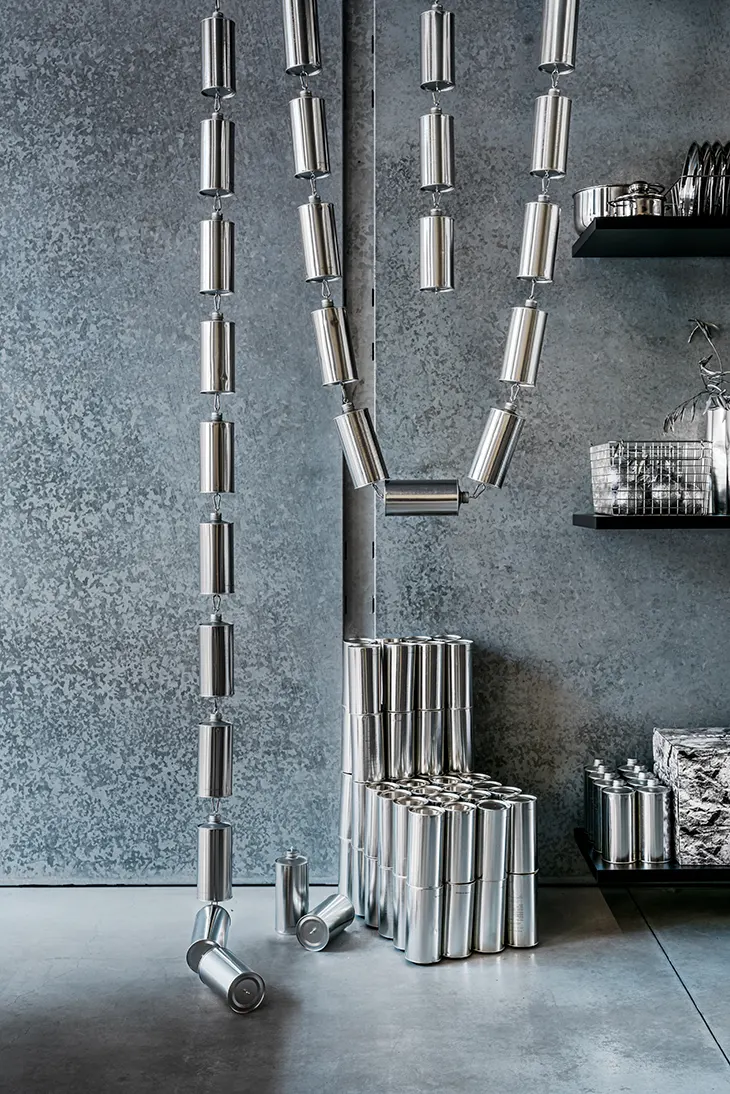
The installation at Capsule Plaza centers around 200 chromatic, laser-engraved olive oil canisters displayed alongside objects that push the boundaries of home goods. Sculptural candles and vases reference dented tin cans; glycerin soaps are cast with olives and branches; mirrored dishes reflect the raw materiality of the harvest. A standout chair, made entirely from unused cans from the previous season, captures the project’s ethos of transforming the residue of production into contemplative design.
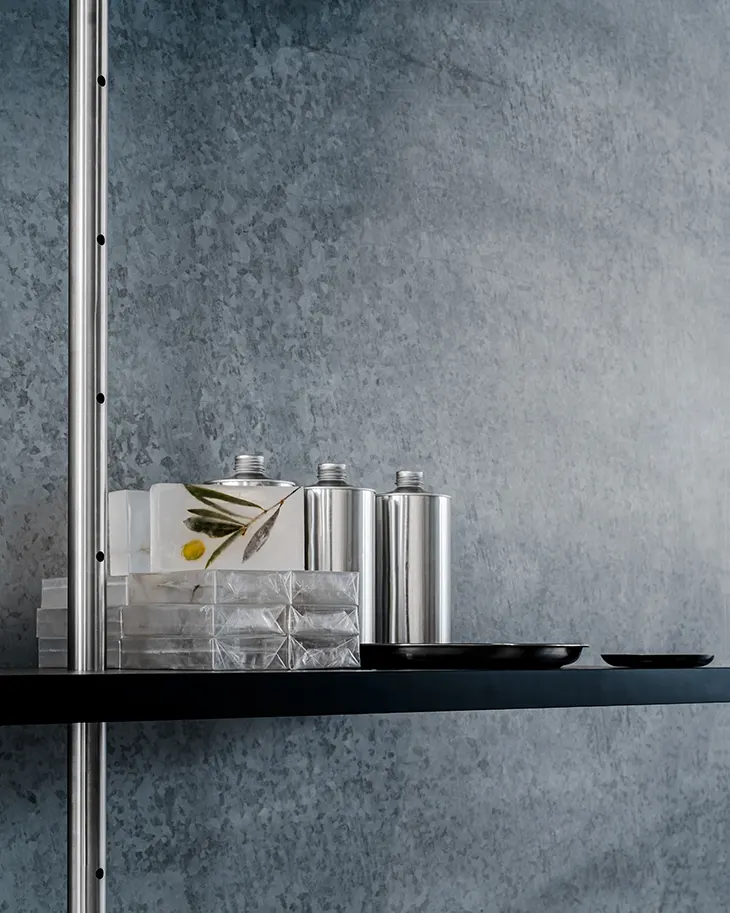
What distinguishes La Terra di Neena is not just its cross-disciplinary form but its resistance to mass production. “We produce only what the land naturally yields,” says Billinger, who oversees the creative direction. “Our olive oil isn’t made to meet demand, it’s made to reflect a specific place, season, and way of working.” This philosophy extends to the product’s packaging, which is treated not as disposable, but as collectible.
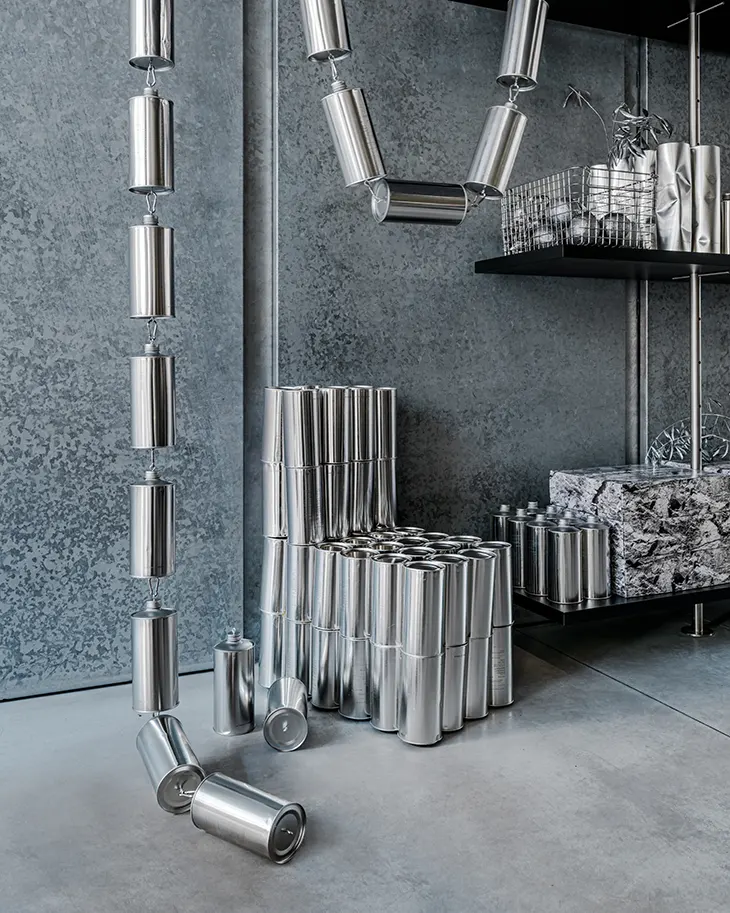
For Nuriev, the collaboration is a natural extension of his ongoing exploration of Transformism, a concept that treats design not only as material manipulation but as a way of reimagining overlooked or discarded forms. “Whether it’s an old sofa or a neglected olive tree, I’m always interested in giving objects new life,” he explains. “This project is as much about how we live and work together as it is about what we create.” The duo’s dynamic as both life and business partners gives the brand a sense of sincerity and purpose rarely found in conventional retail stories.
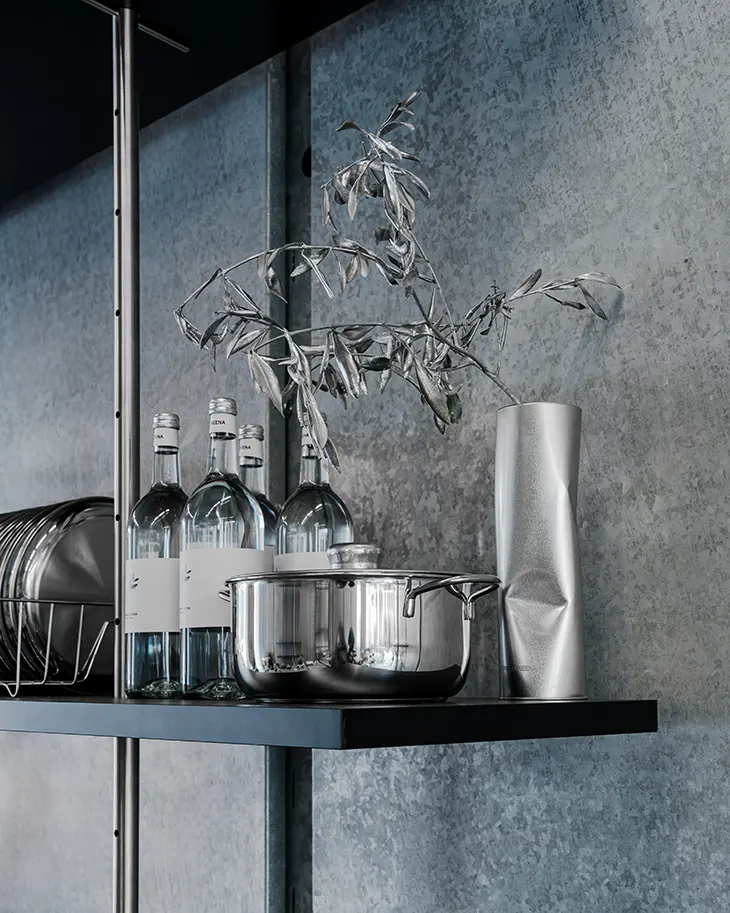
La Terra di Neena’s launch also serves as a quiet statement on slowness and physicality in a hyper-digital world. “We’re releasing in person first because we want people to hold these objects, to smell the oil, to understand it as a living thing,” says Billinger. “Before it becomes a scrollable image, we want it to be something real.” Amid a design week filled with visual spectacle, Crosby Studios’ installation draws attention through its quiet focus on meaning over scale.
